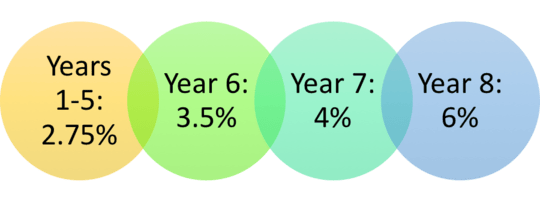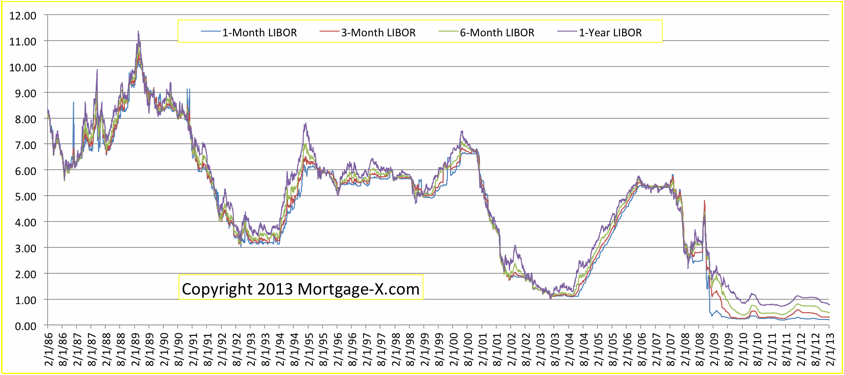Obtained 11 September 2012. [] Heinzl, John (31 October 2010). "The reverse home loan quandary". The Globe and Mail. Retrieved 12 September 2012. "Reverse Home Mortgage Costs And Charges - All You Required To Know". Reverse Mortgage Pros (how many mortgages can one person have). Dominion Loaning Centres Edge Financial. 2018-03-24. Retrieved 12 October 2018. "Costs And Charges For A Reverse Mortgage". Eventually, the goal of the reverse mortgage program is to keep senior citizens in their houses. More handy reverse home mortgage details here. A reverse home mortgage permits people to obtain cash based upon their age, their house's worth, and present interest rates. Older individuals receive a larger portion of house equity than more youthful individuals do, and debtors do not need to make month-to-month home mortgage payments on what is borrowed.
This type of loan is called a reverse mortgage or HECM since rather of the debtor making regular monthly payments to their lending institution as they would with a standard mortgage, the loan provider pays the customer. Unlike a standard house equity loan or 2nd mortgage, a reverse home loan HECM does not need to be repaid till the borrower no longer inhabits the home as their main home or fails to fulfill other obligations of the loan.
Is a HECM right for you? Click on this link. how many mortgages in the us. There are several reverse mortgage programs, some with adjustable rates and some with repaired rates. It is necessary to look into the Loan Officer you choose to work with and make sure they are knowledgeable about the numerous programs and have access to a range of alternatives for you to think about.


To find out more about them, enjoy our video here. An alternative option is an exclusive reverse mortgage, which is not backed by the federal government and is ruled out a HECM loan due to the fact that of the exclusive nature. Discover more about our exclusive programs here. With a conventional home loan or house equity loan, you obtain a big amount of cash and are obliged to make month-to-month mortgage payments back on it.
With a reverse home loan, there are very little credentials and no monthly mortgage payments to make. As a customer protection, borrowers need to show they can keep their real estate tax and property owners insurance coverage. A reverse home loan also has a line of credit that can grow over time and can not be frozen, giving you tax-free access to your equity whenever you might need it.
Receive tax-free lump sum funds, regular monthly payments, a credit line or a combination, providing you the ability to adjust your payment choices as required. Pay back the loan at any time without charge. HECM loans are not thought about earnings, are not taxed, and will not affect Social Security or Medicare benefits.
What Is The Current Index For Adjustable Rate Mortgages for Beginners
There is no time limitation to for how long the loan remains active. Would you like more money in your pocket? Wondering just how much you may get approved for? Call us today at http://dominickmnuo426.lowescouponn.com/the-buzz-on-what-is-the-current-rate-for-home-mortgages 503-427-1667 or complete the kind on this page for more info. To get more information check out the HUD site.
Reverse mortgages sound luring: The ads you see on tv, in print and online offer the impression that these loans are a safe method to fill financial gaps in retirement. Nevertheless, the advertisements do not always inform the whole story. A reverse home loan is a special kind of home equity loan offered to house owners aged 62 and older.
The money you get is typically tax-free and usually will not impact your Social Security or Medicare advantages. what is the harp program for mortgages. The loan does not need to be paid back until you or your partner offers the home, moves out, or dies. Likewise, these loans, usually called Home Equity Conversion Home Mortgages (HECMs), are federally guaranteed. (What's your experience with reverse home mortgages? Share your thoughts by leaving a comment listed below.) But while a reverse mortgage may increase your regular monthly income, it can also put your entire retirement security at risk.
The reverse home mortgage market makes up around one percent of the traditional home mortgage market, however this figure is most likely to increase as the Infant Boom generationthose born from 1946 to 1964retires. That's since an increasing variety of Americans are retiring without pensions and, according to the Employee Advantage Research Study Institute, almost half of retired Baby Boomers will do not have sufficient earnings to cover fundamental costs and uninsured health care costs.
This makes them all the more susceptible to sales pitches for reverse home loans from trusted celebs such as Robert Wagner, Pat Boone, Alex Trebek, previous Senator Fred Thompson and Henry Winkler, who played the lovable cut-up "Fonzie" on Pleased Days. Yet, the CFPB study discovered, a number of these advertisements were characterized by uncertainty about the true nature of reverse home mortgages and small print that is both challenging to read and written in language that is hard to understand.
" The incompleteness of reverse home mortgage advertisements raises increased issues because reverse home mortgages are made complex and frequently pricey," the report specifies. Here's what you require to understand to prevent being misguided by reverse home mortgage ads: A reverse mortgage does not guarantee monetary security for the rest of your life. You do not get the full worth of loan.
The 30-Second Trick For What Are The Best Banks For Mortgages
In addition, the rates of interest you pay is usually higher than for a standard mortgage. Interest is contributed to the balance you owe each month. That indicates the amount you owe grows as the interest on your loan adds up over time. And the interest is not tax-deductible until the loan is paid off.
If you do not pay your real estate tax, keep house owner's insurance or maintain your house in great condition, you can activate a loan default and might lose your house to foreclosure. Reverse home loans can consume all the equity in your home, leaving fewer possessions for you and your successors. Borrowing prematurely can leave you without resources later in life.
However when you die, sell your house or leave, you, your spouse or your estate, i. e., your children, need to repay the loan. Doing that may indicate selling the house to have sufficient cash to pay the accrued interest. If you're lured to take out a reverse home loan, make sure to do your research completely.
Though there are benefits connected with a reverse home loan, do keep in mind that the disadvantages are substantial sufficient to outweigh them. For one thing, you'll generally pay high closing expenses for a reverse home mortgage. In addition, while a reverse home mortgage will offer you access to some cash, it won't necessarily make your house more economical.
Additionally, a reverse home loan is a loan and you're responsible for repaying it. You can do so by offering your house, but then you'll have nowhere to live and will be not able to leave your house to your beneficiaries. If you don't pay back the loan during your life time, it will come due upon your death.